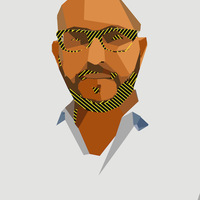Solen Feyissa
University of Minnesota, Curriculum and Instruction, Department Member
Julia L Weinkauf, Alberto E Ardon, Solen Feyissa, Mohammad Sharif Oria, Carolyn Marie Porta Even with obvious training needs, high quality and effective content can be challenging to devel- op for educational programs targeting... more
Julia L Weinkauf, Alberto E Ardon, Solen Feyissa, Mohammad Sharif Oria, Carolyn Marie Porta
Even with obvious training needs, high quality and effective content can be challenging to devel- op for educational programs targeting resource-poor environments. Entire academic fields and bodies of literature exist for various approaches to education in high-resource settings, but such literature is nascent for low-resource environments, including our field of Anesthesiology [1]1. In this article, we discuss some of the challenges and our approach to developing content and a curriculum for teaching highly technical skills as part of an anesthesiology higher education project in Afghanistan. Our strategy involved using Instructional Design principles and accepted strategies of workshop de- velopment but modifying them from the beginning in collaboration with the local providers with the hopes of maximizing local relevance.
Even with obvious training needs, high quality and effective content can be challenging to devel- op for educational programs targeting resource-poor environments. Entire academic fields and bodies of literature exist for various approaches to education in high-resource settings, but such literature is nascent for low-resource environments, including our field of Anesthesiology [1]1. In this article, we discuss some of the challenges and our approach to developing content and a curriculum for teaching highly technical skills as part of an anesthesiology higher education project in Afghanistan. Our strategy involved using Instructional Design principles and accepted strategies of workshop de- velopment but modifying them from the beginning in collaboration with the local providers with the hopes of maximizing local relevance.
Research Interests:
Ardon AE, Weinkauf JL, Feyissa S, Porta CM. A week-long instructional design approach to teach postoperative pain management knowledge among Afghan anesthesiology faculty: a potential global health teaching blueprint. Journal of Global... more
Ardon AE, Weinkauf JL, Feyissa S, Porta CM. A week-long instructional design approach to teach postoperative pain management knowledge among Afghan anesthesiology faculty: a potential global health teaching blueprint. Journal of Global Health Reports. 2020;4:e2020047.
Anesthesia-focused short courses might be an effective and sustainable way to further the ongoing training and evidence-based practice skills of anesthesia professionals in low- and middle-income countries (LMICs). Instructional design, the process by which formalized learning theory is incorporated into education planning and delivery, is a tool that can strengthen learning in these short courses. As part of an ongoing multilateral project between the University of Minnesota (UMN) and Kabul University of Medical Sciences (KUMS), this project sought to identify the feasibility and potential educational impact of a newly designed postoperative analgesia short-course employing instructional design principles. The Afghan faculty learners’ subjective viewpoint of the short course experience was also investigated and is described in this article.
Anesthesia-focused short courses might be an effective and sustainable way to further the ongoing training and evidence-based practice skills of anesthesia professionals in low- and middle-income countries (LMICs). Instructional design, the process by which formalized learning theory is incorporated into education planning and delivery, is a tool that can strengthen learning in these short courses. As part of an ongoing multilateral project between the University of Minnesota (UMN) and Kabul University of Medical Sciences (KUMS), this project sought to identify the feasibility and potential educational impact of a newly designed postoperative analgesia short-course employing instructional design principles. The Afghan faculty learners’ subjective viewpoint of the short course experience was also investigated and is described in this article.
Research Interests:
Research Interests:
Research Interests:
Research Interests: LMS and Usability Testing
Online learning environments present learning opportunities that are interactive and engaging. Our study investigated the use of pedagogical agents in an online HIV prevention intervention designed for transgender individuals in the US.... more
Online learning environments present learning opportunities that are interactive and engaging. Our study investigated the use of pedagogical agents in an online HIV prevention intervention designed for transgender individuals in the US. This study draws on and expands assertions made by prior studies that many factors in design and type of communication style can impact the learner’s interaction with the content, retention within the online learning environment, and retention of content. This study highlights important elements in designing pedagogical agents for online learning.
